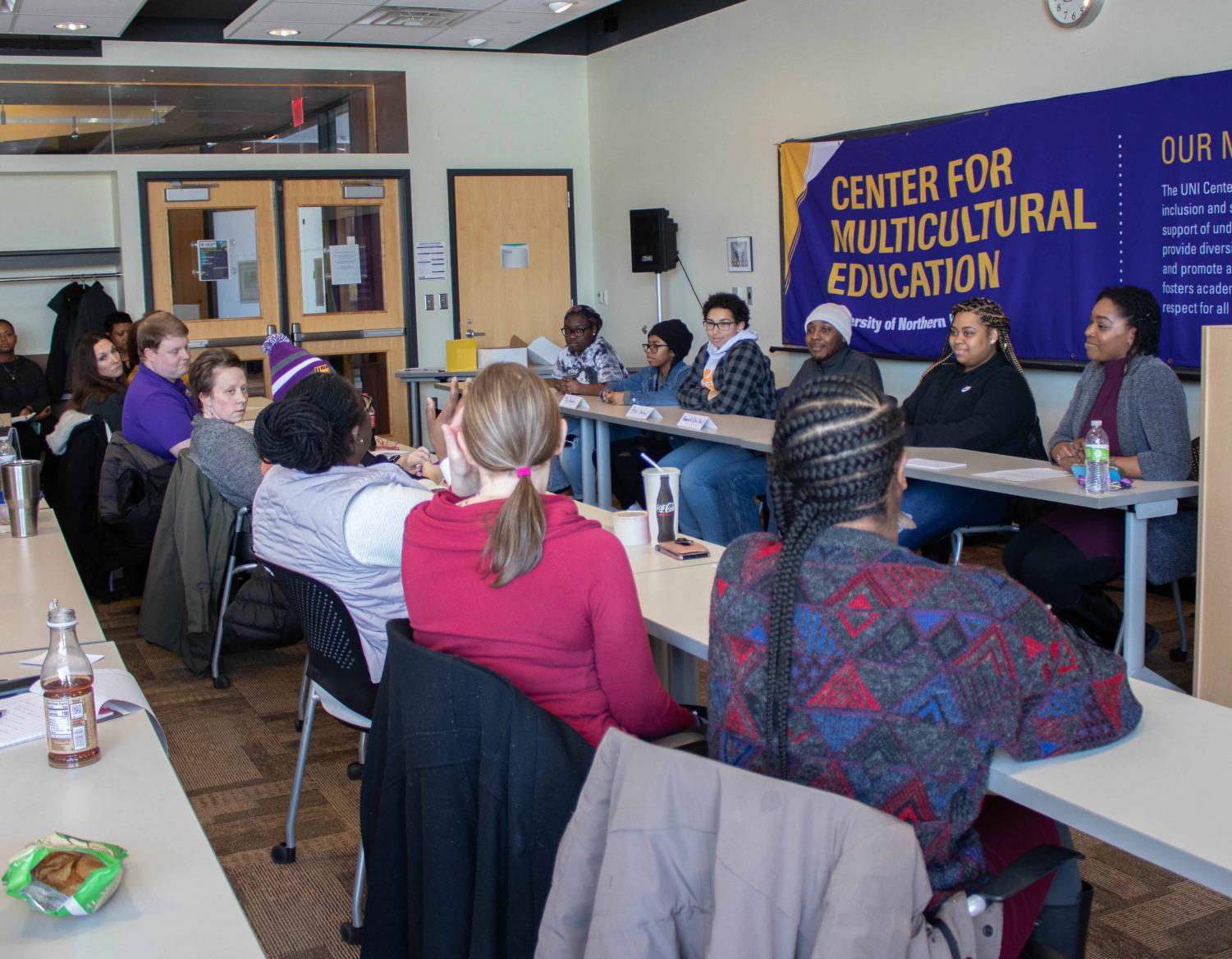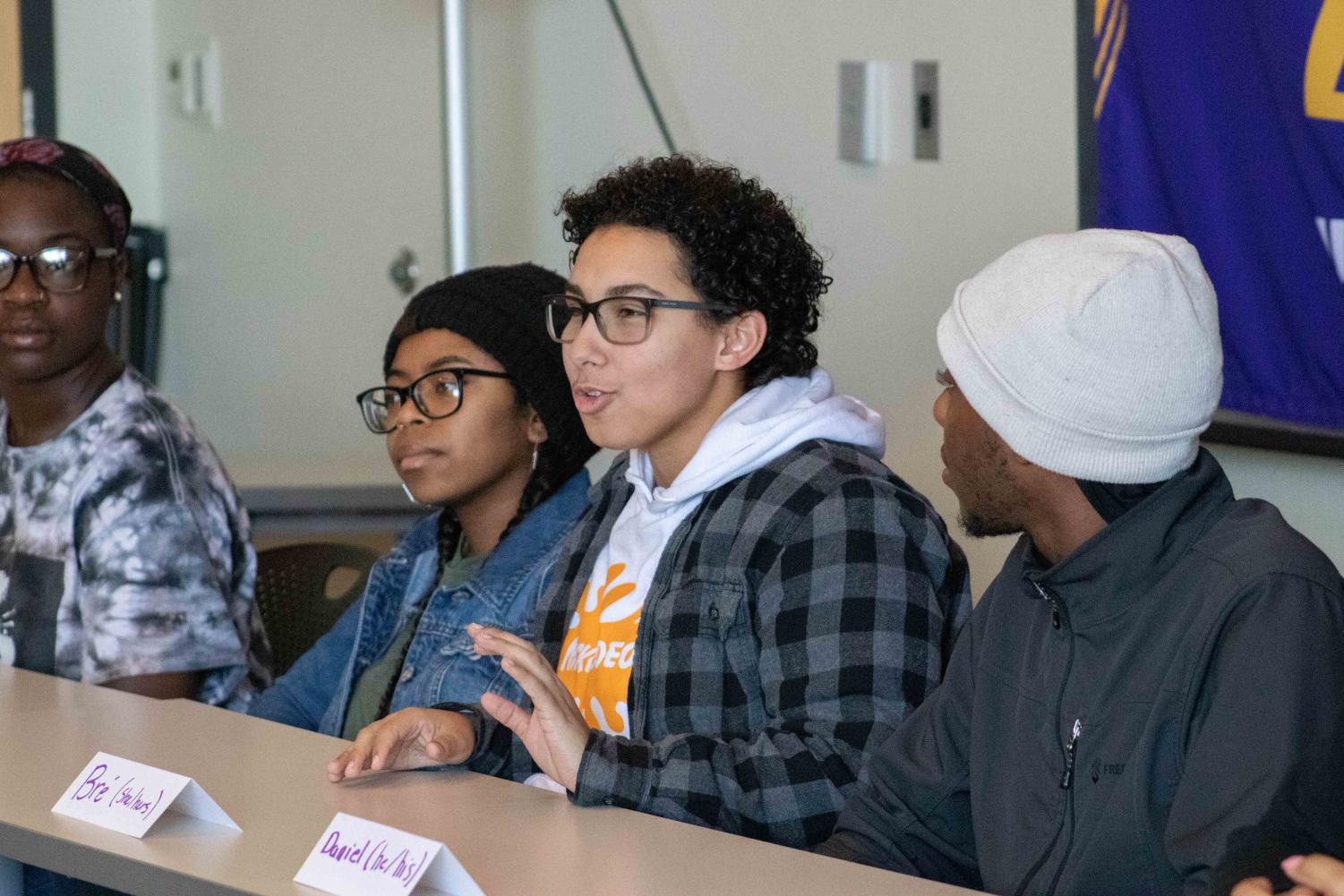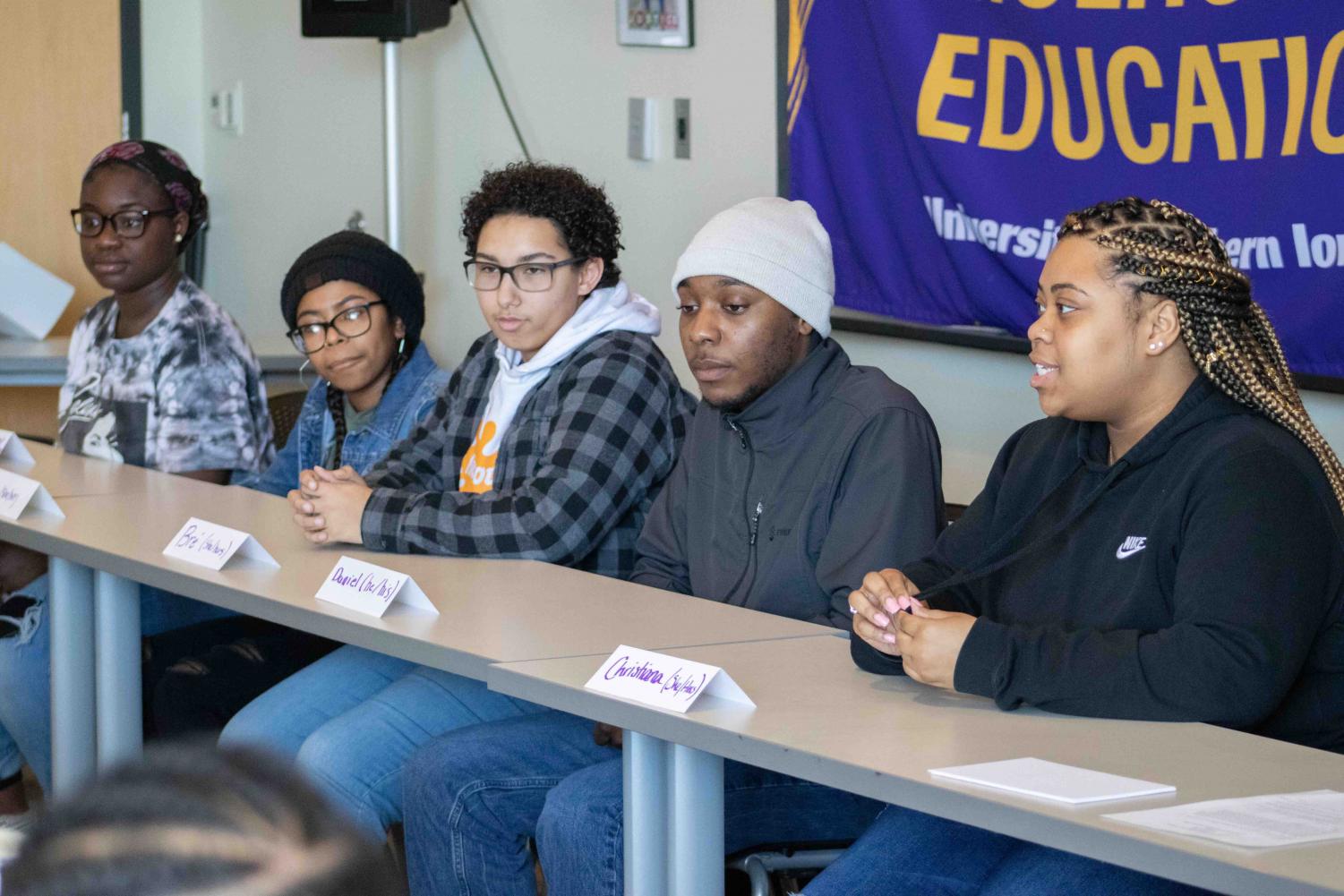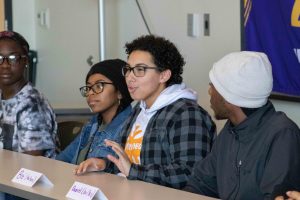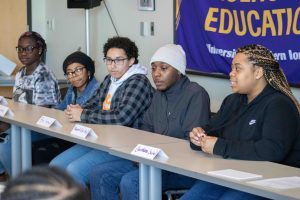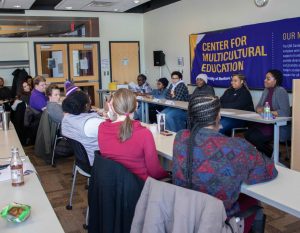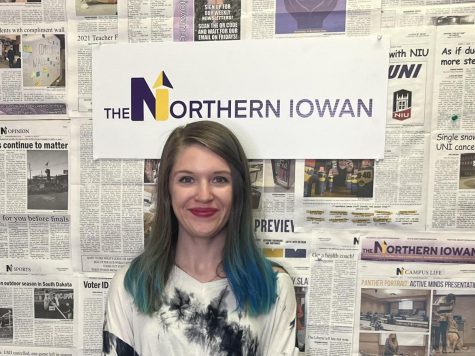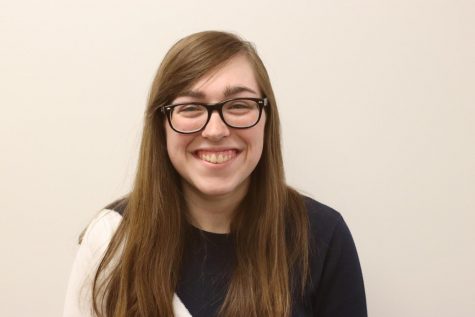CME panel features Black voices
Feb 17, 2020
On Thursday, Feb. 13, the UNI Center for Multicultural Education (CME) hosted a panel discussion with Black and African American students. This was the latest panel in the “What Your Students Want You to Know” series, which was launched in Nov. 2019 to feature the voices of UNI students from diverse populations.
Thursday’s panel, hosted by CME Assistant Director Keyah Levy, focused on challenges, experiences and fears black students have at UNI. Five UNI students answered questions from Levy and the audience, giving professors, staff and other students a glimpse at what everyday life is like for Black students.
While many of the answers contained information on what can be improved, students mentioned several UNI programs that helped them transition into college more easily, such as Jump Start.
“Jump Start was just a great way to meet other people who look like you, who are going through the same transition as you, maybe from a different background or whatever it may be, but you guys are heading towards the same path,” said panelist Christina Downey, a sophomore marketing major. “It was a great way to meet each other, to discuss things that you were going through, and you could always go back to them.”
Levy asked the panelists what challenges or issues they might have faced in navigating the campus.
Panelist Laito Zarkpah, a junior philosophy and political science major, expressed frustration with feeling as though she had to be a “spokesperson” for the Black community.
“Feeling like you have to be the spokesperson for your people, that you speak for every single person that looks like you,” she said. “Sometimes just having to be that spokesperson gets really frustrating. Sometimes I just want to go and sit in class and not have to answer questions about Black history. Sometimes I want to be able to move on campus and not have to deal with the ignorance, the stares and the questions. Sometimes I just want to be a student and being a Black student on campus, sometimes you’re not afforded that luxury.”
Downey added, “Sometimes we don’t want to teach, […] and sometimes I don’t want to talk. I don’t want to raise my hand and answer your question and have to inform you when the next BSU meeting is. For everybody to look towards us for questions, sometimes it’s irritating and frustrating.”
Lastly, Levy asked the students what representation meant to them.
“I would say representation means everything in the world to me,” said panelist Daniel Loggins, an exploratory major. “My granny and uncle went here, so they started getting me familiar with college and struggles I may have to face. […] They placed themselves in a very weird and vulnerable spot, just so that someday along the line, I could come here and have a vision or a blueprint of what to do when I got up here. And for representation, something about seeing a Black historical figure fills me with a sense of pride.”
“I think representation is seeing more Black faculty and staff,” Zarkpah said. “I’ll say that in any situation I’ll always gravitate towards Black faculty and staff because seeing them makes me feel like they understand my experience versus someone that is white. Not to say that a white person couldn’t do the job, but it just feels so much more comfortable to see someone in a position who has your skin color who can truly help you and understand what you’re going through.”
Panelists emphasized that college is a place to educate oneself on a variety of things, race and culture included.
“Show yourself educated, and show yourself improving, show your department improving, show your campus improving,” Downey said. “Make it known that you’re trying to make a better place for diversity on campus. Because yes, we say it and we write it, but it would be better if it was being shown and to have people keep working on it.”
Panelist Bre Eigenheer, a speech/communications and theatre teaching major, ended the discussion with a challenge for everyone at UNI
“I challenge you to be uncomfortable for an hour, because we’re uncomfortable 24/7,” she said.

